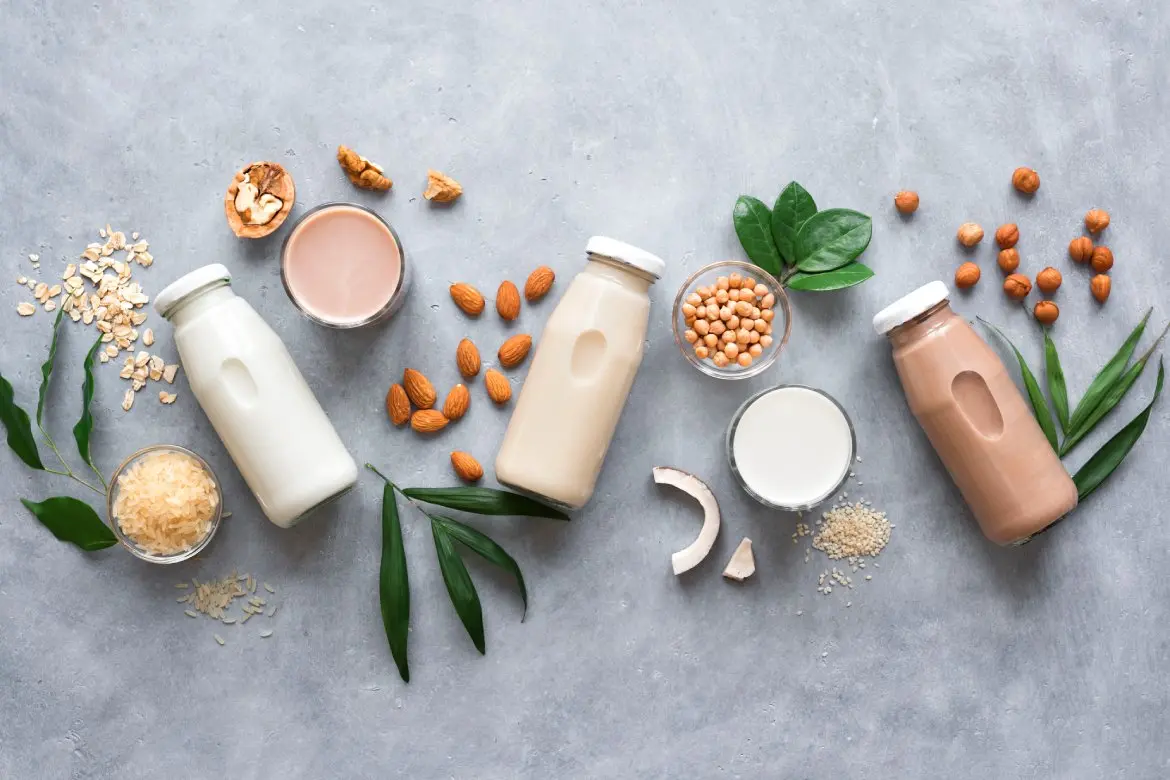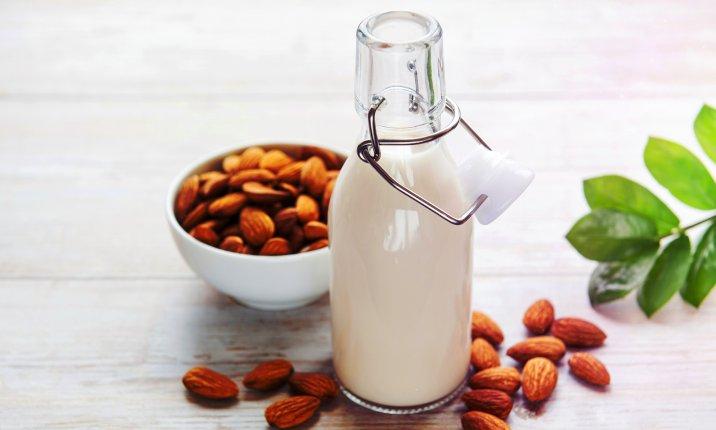It’s been a (steaming) hot minute since milk alternatives made their debut, and here in Singapore, they seem only to be getting more popular.
According to a report by Mordor Intelligence titled "Singapore Plant-Based Food & Beverages Market Size & Share Analysis - Industry Research Report - Growth Trends," the Singaporean market for plant-based milk alternatives is expected to reach USD 100 million by 2027, growing at a compound annual growth rate (CAGR) of 15%.
One propellant of this growth is the perception that milk alternatives are “better” than the original product. But the burning question is, does this hold true? And more specifically, how do we measure that? The answer is subjective and largely dependent on your individual needs and convictions.
This article will guide you in your decision-making process the next time a barista asks you what type of milk you want in your latte. We’ll pit 3 popular milk alternatives: soy, almond, and oat against “the contender”– fresh milk – based on factors such as nutritional benefits and environmental impact.
Let’s dive in.
Fresh, whole cow’s milk
After condensed and evaporated milk, fresh milk– in particular, whole cow’s milk – stands at the top of Singapore's milk and milk alternatives food chain, thanks to its rich, creamy flavour and nutritional value.
Nutritional benefits of fresh, whole cow’s milk
Fresh, whole cow's milk is nutrient-rich. It contains:
- Protein. Cow's milk is a complete protein source, providing all 9 essential amino acids needed for body growth, repair, and maintenance.
- Calcium. Cow's milk is an excellent source of calcium, crucial for bone health, muscle function, and nerve signalling.
- Vitamin D. Adequate vitamin D is essential for calcium absorption and bone health. Cow's milk is a good source of vitamin D, especially when fortified.
- Other nutrients. Cow's milk also provides other essential nutrients, including potassium, phosphorus, vitamin B12, and riboflavin, contributing to overall health and well-being.
Environmental impact of cow’s milk
This is where cow’s milk becomes contentious.
Cows produce large amounts of methane, a potent greenhouse gas, during digestion. This accounts for about 6% of total greenhouse gas emissions globally. Additionally, cultivating dairy feed takes up vast amounts of land and water, leading to deforestation and water scarcity in some regions.
Soy milk
Soy milk is a plant-based, vegan alternative to cow’s milk and is a popular choice among those seeking lactose-free or dairy-free options.
Nutritional benefits of soy milk
Fortified soy milk’s nutritional benefits include:
- Protein. Soy milk contains approximately 7 – 10g of protein per 250ml, making it a plant-based alternative with a protein content comparable to cow’s milk.
- Low saturated fat. Soy milk is naturally low in saturated fat. A diet low in total fat and saturated fat can help reduce the risk of heart disease.
- Essential nutrients. Soy milk is often fortified with essential nutrients, such as calcium, vitamin D, and vitamin B12, ensuring adequate nutrient intake for those avoiding cow's milk. That said, certain popular soy milk brands may lack fortified vitamin B12. It is crucial to examine nutritional labels to identify products with fortified vitamins and minerals.
- Cholesterol-free. Soy milk is naturally cholesterol-free, making it suitable for individuals with high cholesterol levels or those at risk of heart disease.
Environmental impact of soy milk
Soy milk production is less contentious than cow’s milk– especially with regard to greenhouse gas emissions and land use.
That said, the cultivation of soybeans, the key ingredient in soy milk, can have environmental consequences if not managed sustainably. Although soy milk production uses less water than cow milk production, in regions with water scarcity and drought, soybean cultivation can be water-intensive and potentially deplete water sources.
Almond milk
Like soy milk, almond milk is a vegan alternative to cow’s milk and is also a popular choice among those seeking lactose-free or dairy-free options.
Nutritional benefits of almond milk
Those watching their caloric intake would be happy to know that almond milk is naturally low in calories, making it an excellent choice for those managing their weight.
The nutritional benefits of fortified almond milk include:
- Heart-healthy fats. Almond milk contains monounsaturated and polyunsaturated fats, which are considered heart-healthy fats and may help lower LDL (low-density lipoprotein) cholesterol levels.
- Cholesterol-free. Almond milk is naturally cholesterol-free, making it suitable for individuals with high cholesterol levels or those at risk of heart disease.
- Vitamin E. Almond milk is a good source of vitamin E, a potent antioxidant that protects cells from damage and may support immune function.
- Calcium
Environmental impact of almond milk
Much like cow’s milk, almond milk leaves a large environmental footprint.
Almond cultivation requires about 3,700 litres of water to produce just 1 litre of almond milk. This substantial water usage can strain water resources, especially in drought-prone regions like California, where almonds are primarily grown.
In addition to this, almond trees require large amounts of land for growth and production. The expansion of almond orchards has contributed to deforestation and habitat loss in some regions.
And while almond milk production emits fewer greenhouse gases compared to cow's milk production, it still contributes to climate change due to energy consumption during processing and transportation.
Oat milk
Oat milk is the “new kid on the block” compared to its counterparts on this list, only gaining real popularity in the 2010s. That said, it has been around for a while (since the 90s), along with its nutritional benefits.
Nutritional benefits of oat milk
Fortified oat milk is a plant-based milk alternative derived from oats that offers a range of nutritional benefits, making it a popular choice among those seeking lactose-free or dairy-free, vegan options. Its key nutritional benefits include:
- Fibre. Oat milk contains beta-glucan, a type of soluble fibre that may help lower LDL ("bad") cholesterol levels and promote cardiovascular health. With an average of 2g of dietary fibre per 250ml, oat milk emerges as a plant-based alternative that serves as a notable source of dietary fibre in our diet.
- Vitamins and minerals. Oat milk is often fortified with essential vitamins and minerals, such as calcium, vitamin D, and vitamin B12, ensuring adequate nutrient intake for those avoiding cow's milk. That said, certain popular oat milk brands may lack fortified vitamin B12. It is crucial to examine nutritional labels to identify products with fortified vitamins and minerals.
- Low in saturated fat
- Cholesterol-free. Oat milk is naturally cholesterol-free, making it suitable for individuals with high cholesterol levels or those at risk of heart disease.
Environmental impact of oat milk
Oat milk production generates about 60% less greenhouse gas emissions than cow's milk production due to the lower energy requirements for processing oats and the absence of methane emissions from cows.
On top of that, oat milk production requires about 80% less land than cow's milk production, thereby reducing the land footprint needed to produce the same amount of milk.
When it comes to water usage, oat milk production trumps the rest of its peers in the list– only using about 48 litres of water to produce 1 litre of oat milk.
At a glance, here’s what you need to know about fresh milk and milk alternatives:
| Milk type | Nutritional benefits | Environmental impact measured through water usage (litres per litre) |
|---|---|---|
| Cow’s milk | ● Protein ● Calcium ● Vitamin D ● Potassium ● Phosphorous ● Vitamin B12 ● Riboflavin |
628 |
| Fortified soy milk | ● Protein ● Low in saturated fat ● Calcium ● Vitamin D ● Vitamin B12 ● Cholesterol-free |
280 |
| Fortified almond milk | ● Heart-healthy fats (monounsaturated and polyunsaturated fats) ● Vitamin E ● Calcium ● Cholesterol-free |
371 |
| Fortified oat milk | ● Fibre (beta glucan) ● Calcium ● Vitamin D ● Vitamin B12 ● Low in saturated fat ● Cholesterol-free |
48 |
- If you’re lactose intolerant and/or vegan, any of the milk alternatives in the list qualify as options for you
- If your reason for boycotting cow’s milk stems from environmental or ethical concerns, then oat milk is your champion on that front
- If you want to closely retain the nutritional benefits of fresh, whole cow’s milk in a milk alternative, fortified soy milk makes for a good choice
- If you’re watching your weight like you watch Netflix, you can consider unsweetened almond milk, since it naturally has the lowest amount of calories among the options on this list
- If you have a food allergy or dietary restriction, consult your dietitian on which milk option is suitable for you.
At the end of the day, choosing a milk alternative is up to your personal preference and dietary requirements– so enjoy what suits you best.
If you want to make the right dietary choices for your health, our dietitians will be happy to empower you through customised, practical solutions.















